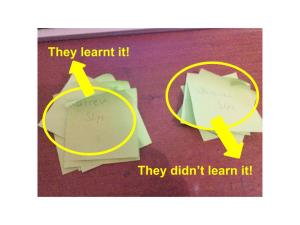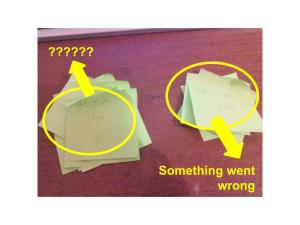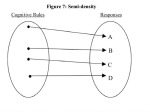The last post I wrote I promised I would talk about what I’ve done for the last 18 months working for Illustrative Mathematics. I thought I would do that all wrapped up with a few (not all) of the things I have learned working with such an amazing group of people.
In July/August we launched the Illustrative Mathematics 6-8 Curriculum [you’ll need to register to view teacher materials, go ahead and do that. It’s free. I’ll wait]. It was a product of a phenomenal quantity of people hours of work (just check out the contributor list!) and we’re very proud of it. Many of my fellow writers have written about things in the curriculum (and I’ll be joining them in doing so later this month) so I’ll add a list of current posts at the end.
OK, onto some things I learned.
There’s a lot more to writing a lesson than just what the students do.
There’s more than the solutions too. There’s thinking about the teacher moves, how it fits in the story of the section and the unit and the course. There’s extensions, digital alternatives and support for students with a variety of challenges. There’s images (more on those later) and making those images fit on a printed page in a sensible way. There’s anticipating student misconceptions and communicating in a useful way what teachers might do to help. And there’s also remembering to use the right names for characters in a consistent fashion.
It takes a lot of cooks to make the broth
They all have a lot to contribute. Those different facets above may well all come from different people. And it’s important they’re on the same page. We spent a lot of time hashing out early (and later) core understandings, techniques, strategies… the list goes on. We tried to all use the same language and phrasing, to make the courses sound like they were written by one person, even if it was written by 20. Hopefully we got it right! In that process, I learned that there are so many more ways to approach teaching and lesson design than I had appreciated before.
It’s not just a content team
We have an amazing team of engineers at IM, and they worked magic. I was lucky enough to get to work with them, and the engineers at Open Up Resources, as they made not only the content management system where all our content is stored, but also the public website with all the applets and teacher information. Beyond the engineering team, there’s a whole bunch of PD Facilitators who help get the curriculum working in classrooms and others in marketing and sales who helped me understand that. You need printers for your books, which means you have to actually care about page breaks and copy editing.
There’s more, but I don’t want this to run more than about 500 words, so I’ll leave it there. It’s been a crazy 18 months.
Oh, and we’re working on High School…






